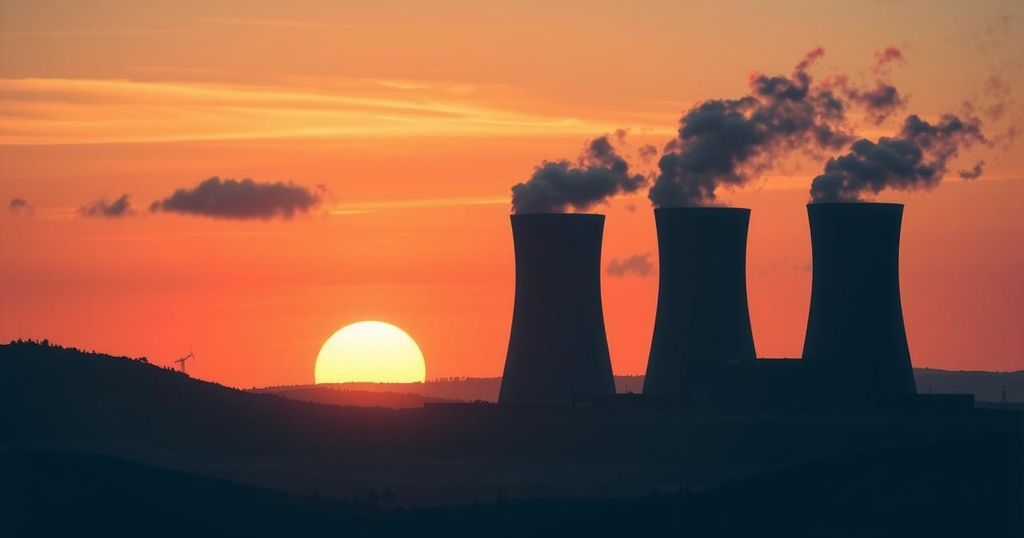Germany’s nuclear power debate resurfaces as the conservative Christian Democrats advocate for a revival due to rising energy costs. Following the 2011 phase-out decision post-Fukushima, the recent energy crisis from the Ukraine invasion highlights reliance on Russian gas. Despite safety concerns about small modular reactors, there is a push for research and development in nuclear technology as an energy solution ahead of upcoming elections.
The conservative Christian Democrats in Germany are reigniting the nuclear power debate just two years after the shutdown of the last reactor, primarily due to skyrocketing energy prices. They are positioning nuclear energy as a critical issue ahead of the February 23 elections, a time when they are expected to emerge victoriously. Following the Fukushima disaster in 2011, which led to Germany’s commitment to phase out nuclear energy, the invasion of Ukraine in 2022 revealed vulnerabilities in the energy supply, highlighting dependence on Russian gas and the need for alternative energy sources.
Jens Spahn, deputy parliamentary leader of the Christian Democratic Union (CDU), emphasized the importance of retaining nuclear energy options, particularly with the potential introduction of advanced small modular reactors (SMRs). He noted that energy demand continues to rise in the digital age, suggesting that innovative nuclear technology could play a vital role in meeting future needs. The CDU’s election manifesto explicitly endorses research into next-generation nuclear solutions, indicating a strategic shift in energy policy.
Friedrich Merz, the leader of the CDU and chancellor candidate, has proposed collaborative efforts with France to develop these small reactors. The Free Democratic Party (FDP) has also expressed a willingness to explore nuclear research, while the far-right Alternative for Germany (AfD) is advocating for a total reversal of the nuclear exit policy. Despite support, nuclear advocates contend with significant opposition, particularly concerning the safety and viability of SMRs, which are still largely experimental.
Rafael Laguna de la Vera, head of the government-backed innovation agency Sprind, argues that Germany must engage with emerging nuclear technology to avoid being left behind in the industrial revolution. He claims that SMRs, being compact and efficient, can supply substantial power with minimal waste, thus contributing to energy independence. Nevertheless, skepticism remains about the practicality and safety of such technologies.
Additionally, the nuclear discourse illustrates Germany’s energy contradictions, with the European Commission identifying nuclear energy as a vital component of the EU’s energy transition. While other nations, like the U.S. and China, aggressively invest in SMR advancements, Germany has focused largely on renewable energy, accounting for over 60 percent of its public electricity supply. This reliance raises concerns regarding future energy demands, signaling a possible need for a more diversified approach.
Germany’s history with nuclear power is marked by significant turning points, including the decision to phase out nuclear energy following the Fukushima disaster in 2011. This exit was formally established on the premise of safety concerns and public sentiment against nuclear energy. However, recent geopolitical events, particularly the energy crisis brought on by the invasion of Ukraine, have prompted a reevaluation of this stance, as the country grapples with surging energy prices and an over-reliance on imports, especially Russian gas.
The renewed debate on nuclear energy in Germany illustrates the shifting dynamics in energy policy influenced by economic and geopolitical pressures. As the conservative parties push for advancements in nuclear technology, particularly small modular reactors, they face opposition regarding safety and feasibility. The situation underscores a broader necessity for Germany to integrate diverse energy sources to secure its future energy landscape.
Original Source: www.politico.eu






